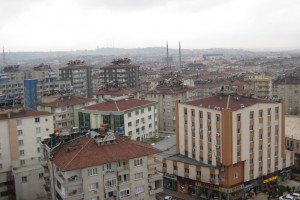
GAZIANTEP, TURKEY — I arrived here two days before Lakhdar Brahimi, the UN-Arab League envoy to Syria, called the horror less than an hour away across the border in Syria “unprecedented.”
The uprising that began in March of 2011 as a peaceful movement for democracy has escalated into a civil war in which the authoritarian government of Syria has killed more than 60,000 of its own people. Nearly 715,000 refugees have fled to neighboring countries. There have also been reports that the Free Syrian Army, the main armed opposition to the dictatorship, has perpetrated human rights abuses.
There are an untold number of displaced people inside of Syria. There are reports that humanitarian aid is not reaching those most in need, because key aid organizations must work with government forces to access affected places and are often not allowed in. The conditions of many of the refugee camps outside of Syria are dismal, and inside of Syria there is not only scarcity, but also violence to deal with.
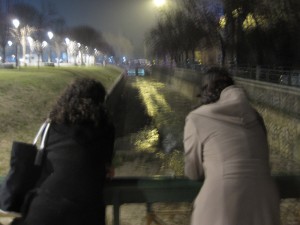
For more background on the conflict, see the BBC. And if you want to go even deeper, to try to understand the roots of the civil war, check out Asad of Syria: The Struggle for the Middle East by Patrick Seale and Human Rights Watch’s 2010 report: A Wasted Decade, Human Rights in Syria during Bashar al-Asad’s First Ten Years in Power.
These reports capture in statistics and academic research what Syrians have known first hand for decades: living under a dictatorship, in a police state, is dangerous. It is dangerous to stand out, dangerous to have an opinion, dangerous to be part of a minority group, dangerous to participate in politics.
When I was living in Damascus in 2010, I was told by many Damascenes that one out of five people at anytime, anywhere, was spying on you. I was advised not to use the term “human rights” in public, or with people I didn’t trust. Speaking about politics or commenting on Syria’s president was also discouraged. Saying the wrong thing in front of the wrong person could result in severe consequences for regular Syrians. I had several friends whose parents had been imprisoned and tortured by the regime for years (in some cases for more than a decade), for belonging to a political party that was not the same Baath party of the dictatorship.
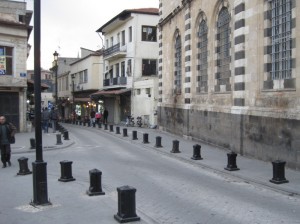
Ten months after leaving Syria, and a few months after the Arab Spring was sparked in Tunisia and Egypt, I was moved when people in the southern Syrian town of Dara’a began peacefully protesting. They took to the street after several children as young as nine were thrown into jail and in some cases tortured, for writing graffiti on the wall. They wrote the refrain of the Arab Spring; The People Want the Regime to Fall. I was inspired because of the bravery of the kids and of their community for protesting. I was also inspired because, as each Friday brought a bigger protest in different parts of the country, it seemed like maybe the spell would be broken, Syria would be free.
That spirit, the spirit of unity and peaceful resistance continued for six months. In the face of mounting violence from the regime, people all over the country nonviolently marched, chanted, and organized in person and online. When the regime killed peaceful protesters, they were honored at funerals that were the best kind of tribute; a non-violent protest with the refrain, “One, one, one, the people of Syria are one”.
Artists created heart-wrenching and hilarious protest art. In some cases they were punished severely for it. Students at Damascus University and Aleppo University ran out of their classrooms to join up when the protests marched by. They devised ingenious tactics to avoid being arrested and beaten by the shabiha (government thugs), including organizing mock protests to draw them away from the real protest.
Activists in Damascus released balloons above a central city square, and when the soldiers shot the balloons down, slips of paper reading “freedom” rained down. Women took leadership roles, marching in the street, organizing protests, becoming online activists, and speaking in public. People took buses to other cities and neighborhoods to participate in the peaceful movement so that they would not be recognized and detained by the regime, and could continue protesting.
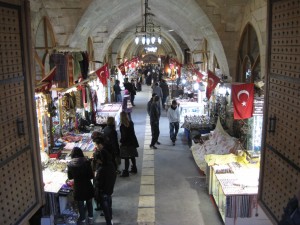
While the peaceful democracy movement in Syria has since been overshadowed by a brutally violent conflict, it is still alive. I came to Gaziantep because I was inspired by the large network of brave, determined, and diverse democracy activists that is still working tirelessly to build lasting peace and justice for Syria. These activists come from every part of the country as well as every ethnic and religious group of Syria. They are men and women, young and old, Arab, Kurdish, Siriac, Alawite, Druze, and Sunni. Many of them were part of the spark that ignited peaceful protests against the dictatorship in 2 011.
As I write, a group of eight Syrian women is wrapping up a meeting in the other room. Their topic is where they see themselves and where they see Syria in 2020. They are working with the Women for the Future of Syria project, being organized by the Center for Civil Society and Democracy in Syria, where I am volunteering.
Nariman Hamo, one of the group’s coordinators, says, “We are setting a goal for ourselves to activate the role of women in everything – civil society, politics, etc. Women in Syria want to get more confident, more ambitious, and have the ability to participate fully. Because all of us agreed that women need the space and the opportunity to get their chance.”
Since it began six months ago, Women for the Future of Syria has trained more than 50 Syrian women in peace negotiation skills, and facilitated numerous brainstorming sessions in which women identify their vision for a peaceful Syria in 2020 and design a plan to get there. They will put these skills and this vision into practice as leaders in their communities, shaping the future of Syria.
On his way out, the husband of one of the participants told me that the Palestinian poet Mahmoud Darwish wrote a poem that lists 112 ways to say water in Arabic. As I go home tonight, I am feeling 112 kinds of hope for Syria.

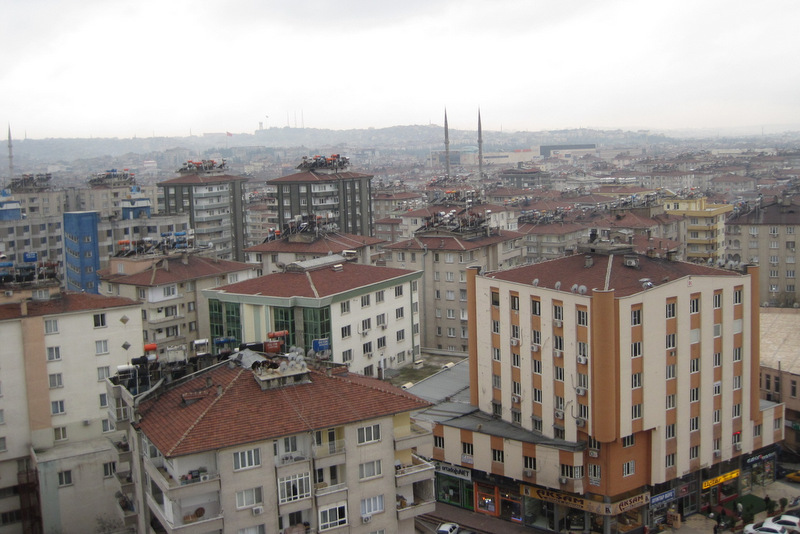
Deprecated: Function get_magic_quotes_gpc() is deprecated in /hermes/bosnacweb08/bosnacweb08bf/b1577/ipg.rifuturecom/RIFutureNew/wp-includes/formatting.php on line 4387
Deprecated: Function get_magic_quotes_gpc() is deprecated in /hermes/bosnacweb08/bosnacweb08bf/b1577/ipg.rifuturecom/RIFutureNew/wp-includes/formatting.php on line 4387
Deprecated: Function get_magic_quotes_gpc() is deprecated in /hermes/bosnacweb08/bosnacweb08bf/b1577/ipg.rifuturecom/RIFutureNew/wp-includes/formatting.php on line 4387